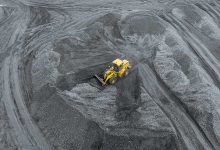47 scientists and experts have signed an open letter urging the NSW Government not to overrule NSW laws that require climate change impacts to be considered in the assessment of new coal mines.
The NSW Government is reportedly set to legislate restrictions on its own Independent Planning Commission preventing it from considering downstream greenhouse gas pollution (Scope 3 emissions) in major development decisions. Scope 3 emissions from burning coal are by far the largest source of greenhouse gases from coal mined in NSW.
The Government has also launched a review that will consider axing the Independent Planning Commission, increasing the power of politicians to approve coal mines and other controversial developments.
Prominent signatories of the open letter include: Nobel Prize winner Professor Peter Doherty AC , leading climate scientists including Professor Will Steffen, head of the climate team at ANU, Professor Katrin Meissner, Director of the Climate Change Research Centre at UNSW, Professor Andy Pitman, Director of the ARC Centre of Excellence for Climate Extremes at UNSW.
It also includes many of Australia’s leading scientists from other key disciplines including, health, economics, energy, and finance, including Professor Hilary Bambrick, Professor John Quiggin, and Dr Liz Hanna.
Key Points:
– Emissions from burning coal (Scope 3 emissions) are by far the largest source of greenhouse gas from coal mined in NSW.
– An important legal decision in the NSW Land and Environment Court found that the full impact of coal mines on climate change, including emissions from burning the coal must be considered in assessing new coal mines. It also rejected many long standing arguments by the coal industry for avoiding considering these emissions.
– The coal lobby has run a relentless campaign against this legal precedent, including unprecedented and misleading attacks on the state’s Independent Planning Commission.
– It has been reported that the NSW Government will cave in to pressure from the coal lobby and change the law to prevent emissions from the burning of coal being considered in the assessment of new coal mines.
“Allowing new coal mines in NSW is incompatible with the NSW Government’s climate policy of net zero emissions by 2050,” said Richie Merzian, Climate & Energy Program Director at the Australia Institute.
“The NSW Government should strengthen planning rules to limit new coal mines whilst supporting regional communities to diversify their economies and seize new job opportunities in renewable energy and other industries.
“The impacts of climate change are made worse by emissions from coal mined in NSW. These mines add around 500 million tonnes of greenhouse gases to the atmosphere every year, almost as much as Australia’s entire domestic emissions,” Mr Merzian said.
“It is absolutely clear from any assessment of what is required to meet the Paris climate targets — to which Australia is a signatory — that no new fossil fuel developments can be allowed. This means no new coal mines in Australia, or elsewhere,” said Professor Will Steffen, head of the climate team at ANU.
“In fact, our challenge is to phase out existing fossil fuel facilities over the next couple of decades, with just transition plans in place to support workers and communities affected,” Mr Steffen said.
“Human-induced climate change is the greatest threat to our national security and future prosperity. It intensifies drought, floods and bushfires and is becoming the key driver of our climate and weather. Scope 3 emissions are the greatest contributing factor. It is absolute hypocrisy to exclude them from government and planning decision-making with much hand-wringing, prayers and crocodile tears over the drought, floods and bushfires they are causing,” said Ian Dunlop, former Chairman of the Australian Coal Association, Former senior executive of Royal Dutch Shell.
“Taking scope 3 emissions into account when considering fossil fuel investments and approvals is critical in the drive to decarbonise energy here in Australia and within the countries to which we export,” said Greg Bourne, Councilllor at the Climate Council and former regional president BP Australasia.
“Progressively companies and countries are tightening up on supply chain that have serious externalities. Just as Australia cannot export toxic waste overseas and can no longer dump plastic waste into external markets, Australia is now coming under increasing pressure to clean up its fossil fuel act.”
“Investments in activities that create emissions here and overseas cannot be given a free ride in the hope that NSW and Australia will pick up the tab for those emissions by pressurising other sectors of the economy or taxpayers in general to underwrite private profits,” Mr Bourne said.










